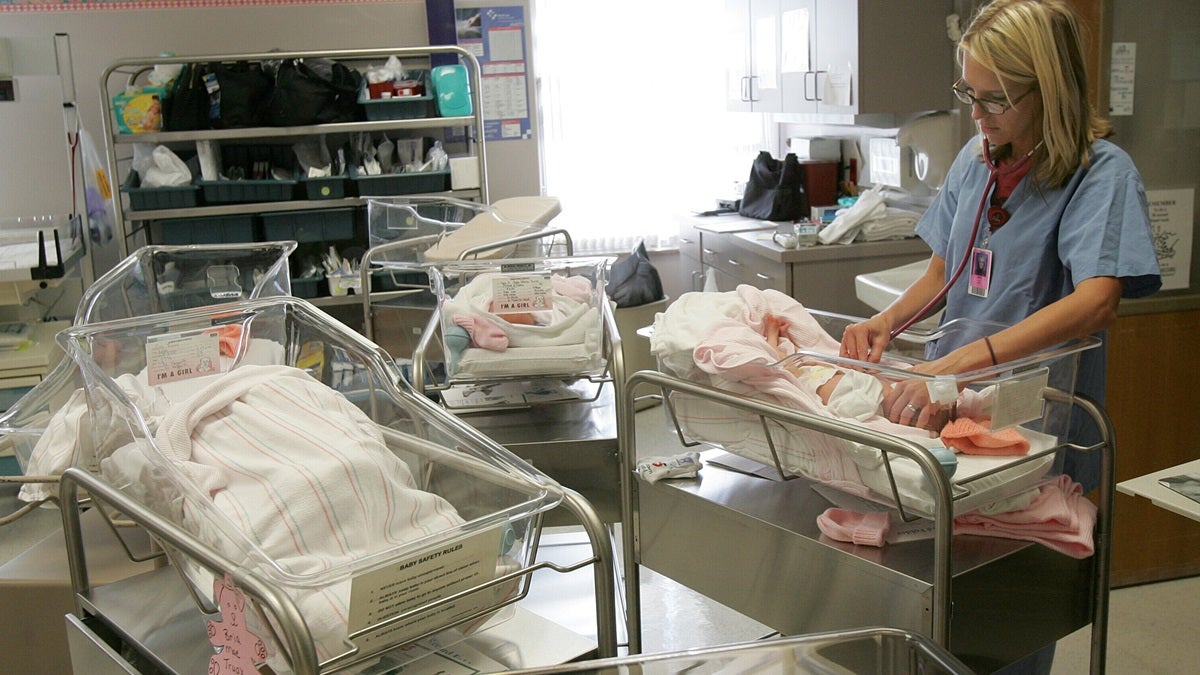Bi-partisan effort in Delaware protects addicted infants

(AP Photo/The Jamestown Sun)
Legislators in Delaware introduced a bill protecting infants exposed to illegal drugs or alcohol during their mother’s pregnancy.
Rep. Ruth Briggs King, R-Georgetown, is co-sponsoring the bi-partisan legislation that would put a federal law known as the Child Abuse Prevention and Treatment Act (CAPTA) into Delaware code.
“Sadly, more and more infants in Delaware are reportedly being born addicted to drugs such as opiates and heroin,” Briggs King said. “These same newborns now become increasingly at risk of substantial injury or death once they are sent home, likely to a substance-exposed environment.”
House Bill 268, also known as “Aiden’s Law,” was drafted in response to the September death of 8-month-old Aiden Hundley, who Briggs King said was reportedly born with prenatal drug exposure symptoms.
His parents, Dole Hundley and Casey Layton of Harbeson, were charged with murder and endangering the welfare of a child for injuries Aiden allegedly suffered while in their care. Aiden was sent to the hospital when he was 3-months-old after suffering a seizure allegedly caused by brain injuries. He was taken off life support five months later.
Briggs King said incidents like this could be prevented if the families of at-risk infants get the services they need, and if social workers, medical providers and counselors worked together to share information.
CAPTA is a federal statute requiring states to enact policies and procedures that address the needs of infants born with illegal substance withdrawal symptoms resulting from prenatal exposure to illegal drugs or a Fetal Alcohol Spectrum Disorder.
The statute also requires healthcare providers involved in the delivery or care of these infants to notify the child protective services system. A “plan of safe care” must also be developed for the child.
Briggs King’s legislation aims to create a protocol, in accordance with CAPTA, requiring child protective services to ensure the safety of substance-exposed infants and providing support and resources to mothers and families. While there is a plan in place to attend to mothers and their children in the hospital, it is often discontinued when the mother returns home.
“At the state level, we must do all we can to make sure these children are protected and kept safe,” Briggs King said.
“This legislation is intended to make sure substance-exposed children no longer fall through the cracks of the system simply because the right hand didn’t know what the left hand was doing.”
She said child abuse can be prevented if the plan of care continues after the mother leaves the hospital and information about the family is shared between medical providers, social workers and counselors. The coordination between agencies is the next step forward to improving the current requirements, Briggs King said.
“You want to try and keep families together, but at the same time you have to identify infants at high risk and who may be subject to abuse,” she said.
“(Mothers) want to attack their addiction, and often lack the resources and fear they will lose their children.”
Briggs King’s bill also expands the requirements so prescribed drugs, such as methadone, also would be reported. However, she said this may be amended because many in the healthcare community fear mothers will not take the treatment if it’s reported.
“It’s just become very prevalent—these babies are being born, and being born with a disadvantage and they have a lot to overcome. They can’t speak for themselves, they need us to speak for them,” Briggs King said.
“We need a better system to archive this information to make sure we’re working for these children, and with a renewed interest so the mothers feel they can get the support they need.”
WHYY is your source for fact-based, in-depth journalism and information. As a nonprofit organization, we rely on financial support from readers like you. Please give today.





